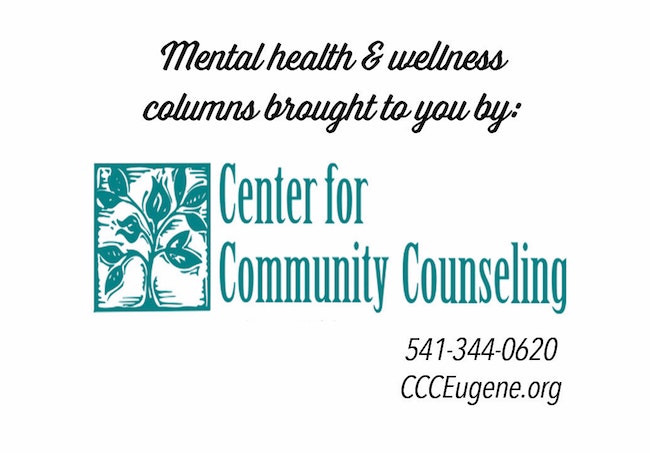
Editor’s note: In partnership with the Center for Community Counseling, The Chronicle publishes columns addressing mental-health issues in our community. Reach out for help at 541-344-0620 and.ccceugene.org.
With the current reality of quarantine and social distancing, people are understandably becoming agitated with the uncertainty surrounding the coronavirus. It’s not uncommon for many people around the world to feel out of control of their own future these days.
Unsurprisingly, this feeling is often associated with emotions of frustration, unfairness, helplessness, anger, and rage.
 Stevens
Stevens
When looking at incidents of domestic violence against women and children since the pandemic began, studies show that interpersonal violence has increased. There is a clear need for people to practice self-care during these times, but how do we do that while also feeling like we are out of control of our own fates?
A major factor impacting how we respond to the current climate is our tolerance of uncertainty. What does it mean to be intolerant of uncertainty? It is a negative response to uncertain situations which results from our perception that it is out of our control. That is, if you are generally uncomfortable with having a lack of control or foresight over something, then you may have a low tolerance of uncertainty.
This concept historically stems from studies on general anxiety disorder, but research suggests intolerance of uncertainty may have a potential connection to anger and aggression as well. We may feel that our current situation is unfair or feel frustrated by lockdown measures. This can lead to anger and aggression. This struggle with uncertainty can hurt the way we think and lead to unhelpful coping strategies, such as rumination.
Maybe this sounds familiar. We all have likely fallen into a state of rumination at one time or another during this global pandemic. Ruminating, or analyzing and deconstructing problem situations through extensive thought, gives us a sense of control and power over our problems.
People who are particularly intolerant to uncertainty will likely find themselves ruminating more often than those who are more comfortable with uncertain situations. However, this sense of control through rumination does not serve the exact purpose we hope it would. Instead, rumination may lead to an increase in negative psychological symptoms and prevent us from going through the necessary emotional processes of coping with a traumatic event.
As such, the prevalence of anxiety, depression, and aggression have been on the rise since the beginning of COVID-19 lockdown measures.
So, how do we curb our frustrations during this global pandemic? Some of the most immediate preventive strategies that we can implement today are simple exercises and behavioral changes. Having friends and family to talk about our frustration and angst with is a great way to decompress anger, as well as to gain another perspective on the problem. Even if you are limited to a phone call or video, reaching out and conversing about your frustration can help alleviate the negative outcomes of rumination. Journaling and writing down our thoughts is another way of tracking our emotions and understanding our frustration before it escalates. Noting the triggers for your frustration, how you respond to those triggers, and what you can do to replace that response is a great method for reducing negative responses in the future.
The pandemic has left many of us feeling powerless. More than ever, we need to empower ourselves and make room for self-care. It is natural to feel bouts of frustration and anger at the uncertainty of our situation, but we can improve these feelings by engaging with the people in our social networks, spending less time ruminating, and more time analyzing the core reasons for our frustration.
Jeton Stevens is an intern at CCC.







